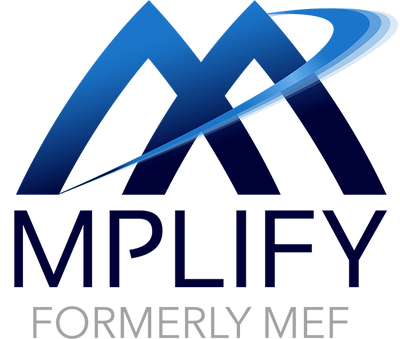NaaS for AI: Scaling Enterprise AI with GPU-as-a-ServiceNaaS for AI: Scaling Enterprise AI with GPU-as-a-Service
GPU-as-a-Service offers enterprises on-demand GPU resources for real-time AI processing without hardware investment, enabling better data control, lower latency and simplified deployment across industries.

As artificial intelligence plays an increasingly central role in enterprise digital transformation, organizations are discovering that they can't rely solely on centralized cloud infrastructure. Use cases that depend on low latency, real-time processing -- such as video analytics, robotics and smart infrastructure -- require more flexible deployment options that support tighter control and stronger data governance.
GPU-as-a-Service (GPUaaS) is emerging as a practical, scalable service. By accessing GPU resources on demand, enterprises can achieve faster performance, greater flexibility and stronger control over sensitive data -- all without having to manage their own GPU hardware.
Rethinking Centralized AI Infrastructure
Many enterprise AI systems today use public cloud infrastructure for both training and inferencing. While this model can be effective for batch processing or non-time-critical workloads, it introduces latency that can undermine real-time use cases. For example, detecting safety hazards in a manufacturing facility or monitoring traffic patterns in a city environment demands immediate insights that cloud-based processing may struggle to deliver consistently.
GPUaaS offers a compelling alternative by enabling enterprises to access compute resources from distributed, trusted environments -- such as private data centers, collocated infrastructure or service provider platforms -- without sacrificing control or compliance.
Understanding GPU-as-a-Service
GPUaaS provides enterprises with access to high-performance GPU computing on a usage-based or subscription model. Instead of purchasing, deploying and maintaining dedicated infrastructure, organizations can provision GPU resources from service providers.
This service model allows enterprises to:
Train models using sensitive data from the enterprise.
Accelerate deployment of AI workloads without hardware investments.
Scale AI capabilities dynamically as workload requirements evolve.
Improve latency and performance by processing data locally.
Maintain greater control over data to support privacy, compliance and security.
GPUaaS lowers the operational and technical barriers to AI adoption, especially for enterprises that may lack in-house expertise in GPU infrastructure or AI model management.
Enterprise Use Cases: Real-Time Intelligence
GPUaaS supports a wide range of industry applications:
Retail: Real-time video analytics for loss prevention and customer behavior analysis, processed directly from in-store cameras without sending footage to the cloud.
Manufacturing: On-site machine vision systems for detecting defects or guiding robotic operations, ensuring rapid feedback and precision.
Smart cities: Traffic monitoring, pedestrian safety and public surveillance.
Healthcare: IoT-enabled patient monitoring and diagnostics that complies with privacy regulations.
In each of these cases, flexible GPU compute resources enable faster, more actionable insights while minimizing reliance on centralized infrastructure.
Simplifying Deployment and Management
A key advantage of GPUaaS is its ability to streamline AI deployment and integration. Many providers offer pre-integrated solutions tailored to specific industries, combining GPU infrastructure with domain-specific AI models and orchestration tools. Some also include related services, such as private 5G, SD-WAN or network security, into a unified offering that enterprises can adopt without overhauling existing infrastructure.
This level of integration reduces time to value, simplifies management and supports alignment with existing enterprise IT and cybersecurity frameworks. Organizations can focus on operational outcomes rather than infrastructure complexity.
Security, Compliance and Data Governance
As regulatory demands grow, enterprises increasingly require AI deployments that align with data protection and compliance requirements. GPUaaS provides a viable alternative to public cloud models, particularly for data-sensitive workloads.
Enterprises can maintain control over sensitive information. These deployments can also be incorporated into enterprise cybersecurity strategies, reducing the risks associated with moving sensitive data across networks.
Standards and Ecosystem Support
The effectiveness of GPUaaS depends not just on the infrastructure, but on a comprehensive supporting ecosystem. Technology providers offer hardware optimized for edge environments, pre-trained AI models and development tools to accelerate enterprise adoption.
Organizations like Mplify, formerly MEF, have introduced orchestration frameworks, such as the Lifecycle Service Orchestration (LSO) framework, with open standard APIs that support consistent provisioning and service management across providers and geographies. These frameworks help ensure that GPUaaS deployments are scalable, interoperable and aligned with enterprise expectations for service consistency.
A Practical AI Deployment Model for the Enterprise
As enterprises continue to scale their use of AI for automation, insight and real time responsiveness, they require infrastructure models that are as agile as the workloads they support. GPUaaS offers a compelling path forward: on-demand access to GPU compute power where and when it's needed, without the complexity or cost of building out dedicated infrastructure.
For enterprises seeking to operationalize AI across distributed environments while maintaining control, compliance and performance, GPUaaS represents a smart, scalable way to bring AI closer to the business.
(Editor’s note: This article is part of our regular series of articles from the industry experts at Mplify, formerly MEF.)
Pascal Menezes, CTO at Mplify, is a proven technology thought leader, sales evangelist, product manager and seasoned IP architect with decades of experience in internetworking, next-generation information systems and communication architectures.
At Mplify, Pascal leads the advancement of cutting-edge automation, security and networking technologies, focusing on Network-as-a-Service (NaaS), AI-driven networking, Mplify’s Lifecycle Service Orchestration (LSO), SASE (Secure Access Service Edge), SD-WAN, cloud-scale architectures, edge computing, service assurance and API-driven interoperability. His work is driving industry alignment around standardization and certification for automation in global communications services.
See his collection of Network Computing articles here.
About the Authors
You May Also Like




